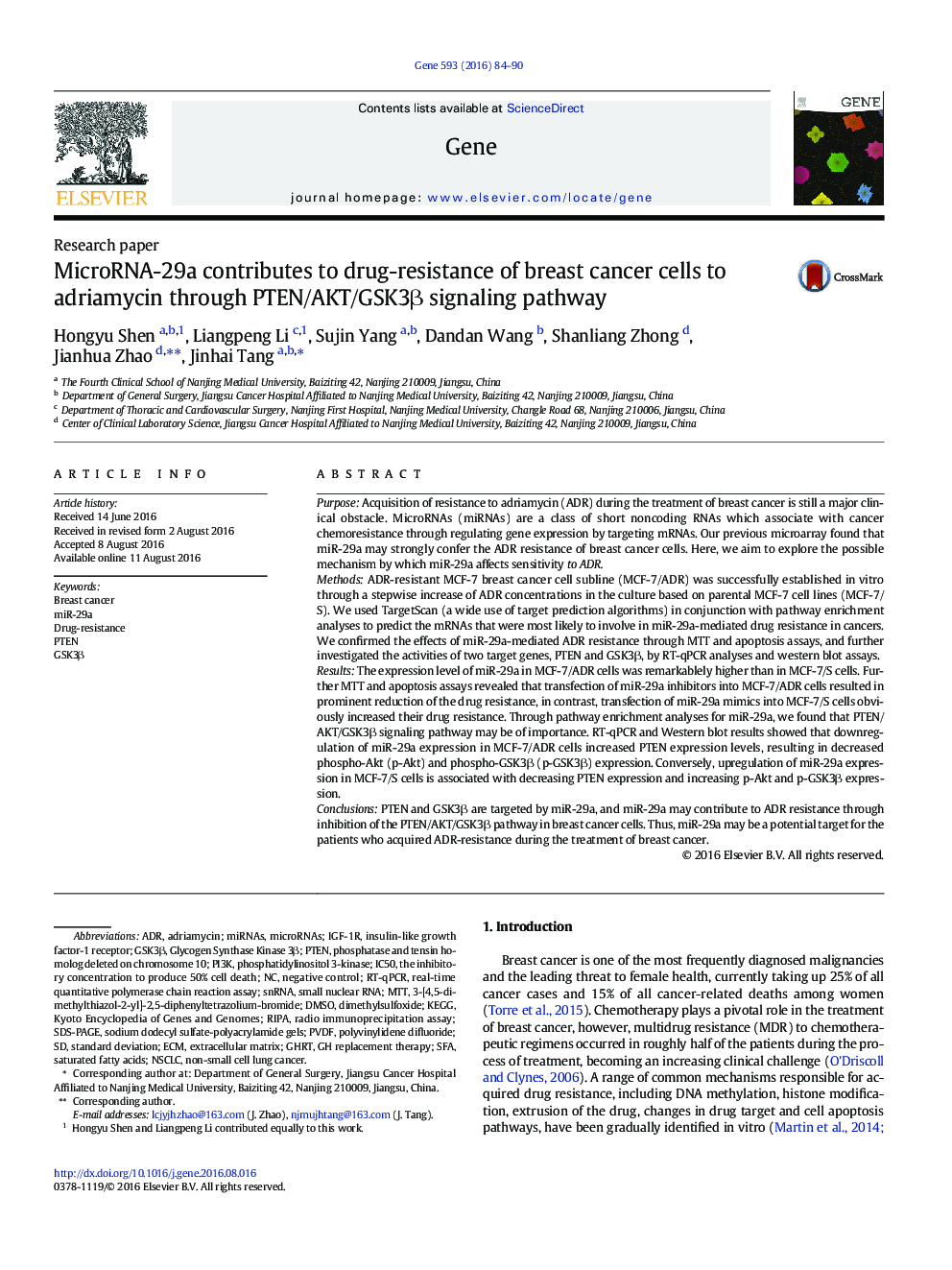| کد مقاله | کد نشریه | سال انتشار | مقاله انگلیسی | نسخه تمام متن |
|---|---|---|---|---|
| 2814738 | 1159827 | 2016 | 7 صفحه PDF | دانلود رایگان |

• The expression of miR-29a is significantly different between MCF-7/S and MCF-7/ADR cells.
• PTEN and GSK3β play an important role in ADR-resistance of breast cancer.
• It is a detailed mechanism potentially involved in the ADR-resistance of breast cancer cells.
PurposeAcquisition of resistance to adriamycin (ADR) during the treatment of breast cancer is still a major clinical obstacle. MicroRNAs (miRNAs) are a class of short noncoding RNAs which associate with cancer chemoresistance through regulating gene expression by targeting mRNAs. Our previous microarray found that miR-29a may strongly confer the ADR resistance of breast cancer cells. Here, we aim to explore the possible mechanism by which miR-29a affects sensitivity to ADR.MethodsADR-resistant MCF-7 breast cancer cell subline (MCF-7/ADR) was successfully established in vitro through a stepwise increase of ADR concentrations in the culture based on parental MCF-7 cell lines (MCF-7/S). We used TargetScan (a wide use of target prediction algorithms) in conjunction with pathway enrichment analyses to predict the mRNAs that were most likely to involve in miR-29a-mediated drug resistance in cancers. We confirmed the effects of miR-29a-mediated ADR resistance through MTT and apoptosis assays, and further investigated the activities of two target genes, PTEN and GSK3β, by RT-qPCR analyses and western blot assays.ResultsThe expression level of miR-29a in MCF-7/ADR cells was remarkablely higher than in MCF-7/S cells. Further MTT and apoptosis assays revealed that transfection of miR-29a inhibitors into MCF-7/ADR cells resulted in prominent reduction of the drug resistance, in contrast, transfection of miR-29a mimics into MCF-7/S cells obviously increased their drug resistance. Through pathway enrichment analyses for miR-29a, we found that PTEN/AKT/GSK3β signaling pathway may be of importance. RT-qPCR and Western blot results showed that downregulation of miR-29a expression in MCF-7/ADR cells increased PTEN expression levels, resulting in decreased phospho-Akt (p-Akt) and phospho-GSK3β (p-GSK3β) expression. Conversely, upregulation of miR-29a expression in MCF-7/S cells is associated with decreasing PTEN expression and increasing p-Akt and p-GSK3β expression.ConclusionsPTEN and GSK3β are targeted by miR-29a, and miR-29a may contribute to ADR resistance through inhibition of the PTEN/AKT/GSK3β pathway in breast cancer cells. Thus, miR-29a may be a potential target for the patients who acquired ADR-resistance during the treatment of breast cancer.
Journal: Gene - Volume 593, Issue 1, 15 November 2016, Pages 84–90